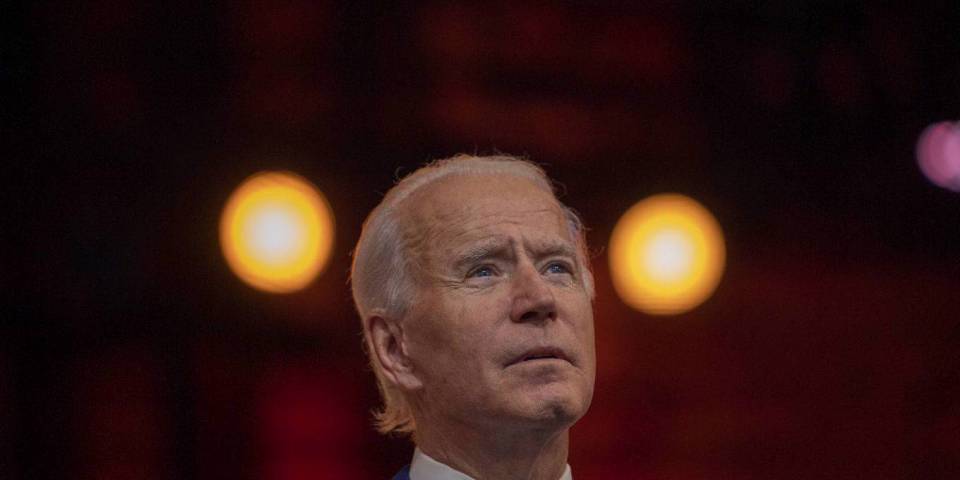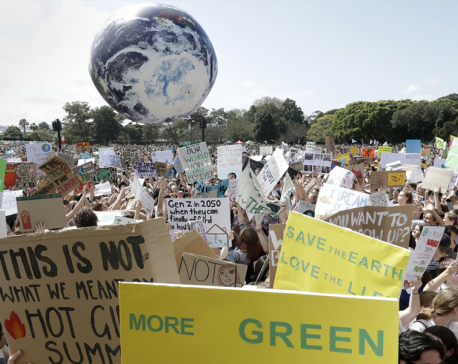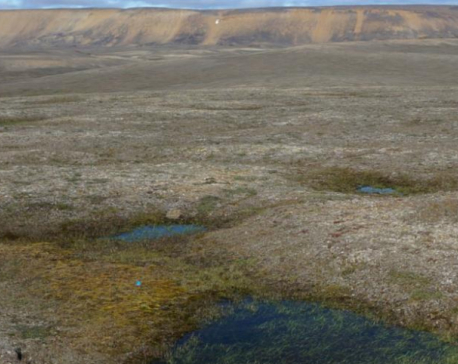
OR
Reasons to hope for better actions on climate change
Published On: December 24, 2020 07:00 AM NPT By: Prakash Paudel


Prakash Paudel
Prakash Paudel is a PhD candidate at Institute for Sustainable Futures, University of Technology, Sydney.news@myrepublica.com
We can expect Joe Biden to play a leading role to unite countries for combating climate change effects more effectively.
"The battle [has begun] to save our planet by getting climate under control," said Joe Biden in a victory statement. This has created a greater confidence to restore the US leadership on global climate change action. Biden’s plan stands in sharp contrast with Donald Trump’s devastating insincerity to climate change impacts. And such commitment from a newly elected president of the largest economy is expected to have larger implications for smaller and developing economies to help them to cut down their emissions and boost the global climate change action. What Biden’s policy could potentially mean to the whole planet is equally worth discussing.
In addition to meeting the US target on emissions reductions, Biden has a plan to rally other major and smaller economies to come up with strengthened nationally determined contributions (NDCs), so that 2050 goals can be achieved collectively on timely basis. On the other hand, at a time when the rich countries have failed to deliver their promised aid of $100 billion a year in climate finance, Biden has assured to revive the US funding for the Green Climate Fund to help developing or poorer countries to mitigate their climate change impact. Moreover, he commits to work with multilateral financial institutions to provide ‘green debt relief’ for developing countries who make climate commitments. And he also pledges to revamp USAID in a way to support climate action and to ensure environmental justice to the recipient countries.
More importantly, Biden can project the climate finance to the smaller economies as a part of post-Covid-19 recovery packages. For example, his administration can authorize special drawing rights to International Monetary Fund (IMF) to unlock up to $650 billion where small and developing economies will have easy access on the basis of their needs for their green and inclusive recovery. So, small economies are expected to receive more aid as climate finance to manage their climate commitments.
Biden’s Clean Energy Revolution Plan is also expected to be helpful to flow clean-energy technologies to the smaller economies to achieve the target of net zero greenhouse emissions and 100 percent clean energy economy by 2050. It also supports those economies meeting the goals of Paris Agreement by reducing global heating by about 0.1C by the end of this century.
Besides helping to cut down the emissions, Biden also wants to help every country to make their domestic climate polices more transparent and enforceable to stop cheating on climate commitments. He also assures to end multilateral export institutions and developed countries’ export finance subsidies for coal and high emission technologies to the poorest countries. It is because Biden strongly believes that environmental justice is social justice. Thus he has pledged justice to those smaller economies, which contribute little in emission but which suffer disproportionately.
Biden intends to integrate climate change foreign policy with national security strategies and foreign trade. It is because if the societies are made vulnerable due to the climate change effects, they might put national as well as regional security at risk. Such integration will definitely help to build more peaceful societies.
It is sad to note that Trump reversed all the Obama-era climate policies and withdrew from Paris Agreement on Climate Change. It has undoubtedly hampered global political action on climate change by weakening the emissions rules instead of leading the other governments in strict implementation. While other major economies such as Japan, China, the EU, South Korea, who produce the major global greenhouse emissions, are coming up with the greater commitments of cutting down their emissions to zero even amid the Covid-19 pandemic, Trump’s insincerity in the past to control the climate change effects has increasingly left the US isolated from other major world powers.
Trump paid no attention to the need of countries to urgently work together to scale up their climate action in a more responsible way to save the planet from global warming and to ensure greener, more resilient future for us all. Trump’s such insincerity placed a greater pressure on Biden to win the election.
There are several reasons to believe Biden’s administration will be able to resume its leadership for global climate change action.
First, Biden has expressed the commitment to the Paris Agreement on Climate Change by restoring all those environmental safeguards taken by Obama-Biden Administration.
Second, during the election campaign, he presented Clean Energy Revolution plan, which is part of the Green New Deal, to lead the whole world to address the climate change threats. Third, Biden is also taken as a ‘climate change pioneer’ because of his outstanding contribution on climate change action during Obama-Biden administration.
Biden was one the key players of Obama-Biden administration, which played a very active role to rally the world to achieve the groundbreaking Paris Climate Accords; worked with foreign governments to conserve tropical forests, introduced first-ever climate bills in Congress and oversaw Recovery Act, which advocated for need of biggest clean energy investment. Thus we can expect Biden to play a leading role to unite countries for combating climate change effects more effectively.
That said Biden also has a bigger challenge to pursue the tasks left unaccomplished by his predecessor, meet the new targets to combat climate threats and lead the rest of the world by rebuilding the trust.
You May Like This

Tens of thousands join climate protests before UN summit
CANBERRA, AUSTRALIA, Sept 20: Tens of thousands of protesters joined rallies on Friday as a day of worldwide demonstrations calling... Read More...

Scientists amazed as Canadian permafrost thaws 70 years early
LONDON, June 19: Permafrost at outposts in the Canadian Arctic is thawing 70 years earlier than predicted, an expedition has discovered,... Read More...

Climate change threatens our survival
Hindu Kush Himalaya Assessment report released by International Centre for Integrated Mountain Development (ICIMOD) raises alarm for the countries lying... Read More...





Just In
- MoHP cautions docs working in govt hospitals not to work in private ones
- Over 400,000 tourists visited Mustang by road last year
- 19 hydropower projects to be showcased at investment summit
- Global oil and gold prices surge as Israel retaliates against Iran
- Sajha Yatayat cancels CEO appointment process for lack of candidates
- Govt padlocks Nepal Scouts’ property illegally occupied by NC lawmaker Deepak Khadka
- FWEAN meets with President Paudel to solicit support for women entrepreneurship
- Koshi provincial assembly passes resolution motion calling for special session by majority votes






_20220508065243.jpg)






Leave A Comment